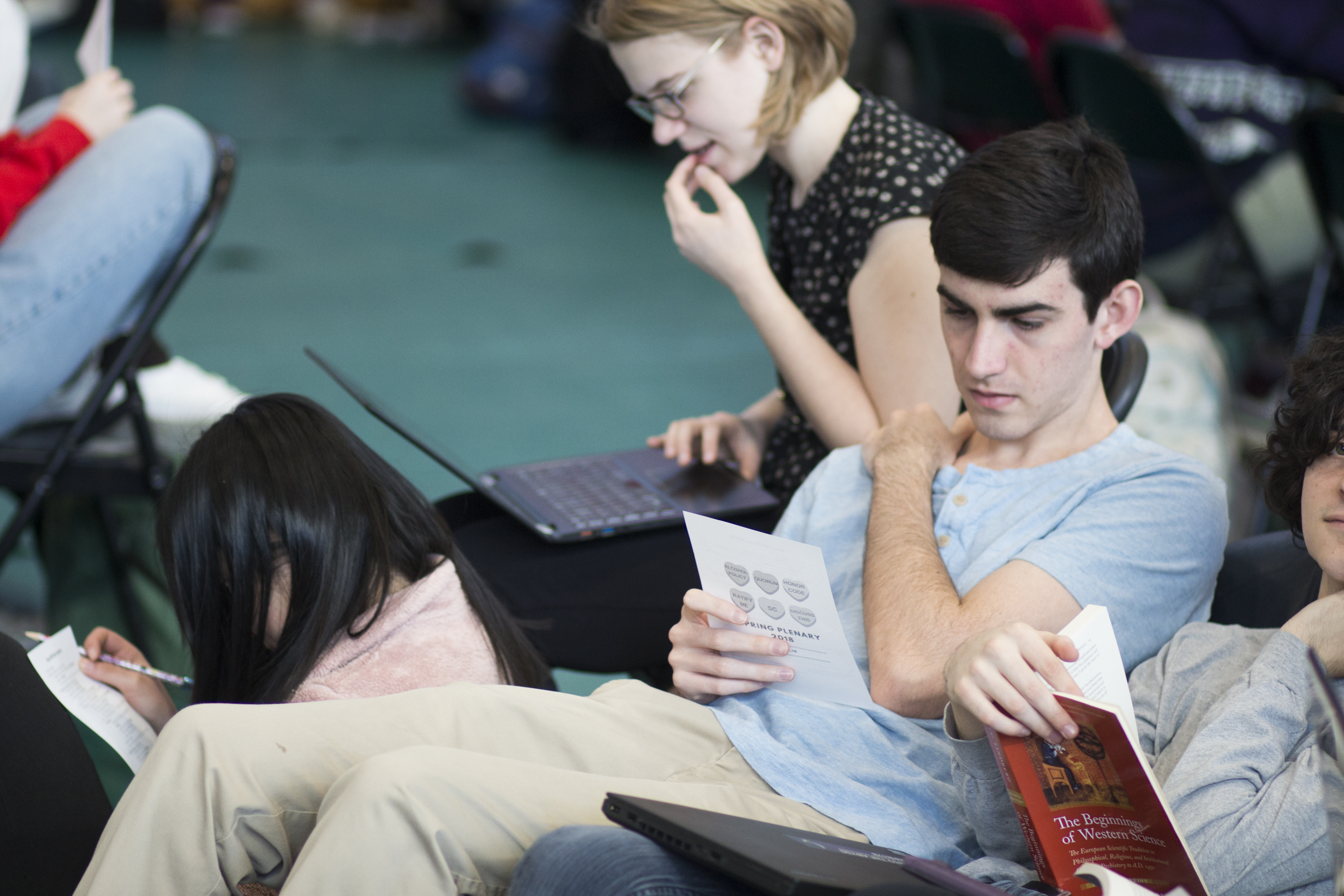We have removed several quotes from this article due to a violation in our editorial policy that was brought to our attention on March 8, 2018. We apologize to the community for this significant mistake and will take steps to properly train all staff members to ensure mistakes like this do not occur again.
By Claire Blood-Cheney, Staff Writer
In recent years, a growing number of Haverford students have become dissatisfied with the Honor Code. In 2013, the Haverford Clerk reported that less than two-thirds of the people present at Plenary voted to ratify the Honor Code, resulting in a Special Plenary. The Honor Code was heavily re-drafted and eventually passed but still faces criticism for both the academic and social sections of the code.
Last year, a survey including 200 students with a response rate of 57% was conducted. The results of the survey revealed that “20.79% of respondents have violated the Academic Honor Code” and “44% of Haverford students have witnessed or known about a violation of the Academic Honor Code.” These statistics make some students question the effectiveness of the Academic Honor Code. At the same time, issues with the Social Honor Code are becoming a topic of debate playing out on social media.
At this year’s Spring Plenary, two-thirds of the students present voted in favor of opening ratification of the Honor Code. An electronic survey was then sent with the options:
- “I vote for its ratification for the following reasons…”
- “I vote for its ratification, but I have the following objections…”
- “I do not vote for its ratification for the following reasons…”
Unsure about how they should vote, some students began a conversation on Facebook in order to hear opinions from the community. Criticisms of the Social Honor Code immediately surfaced around campus and on community social media pages.
The role of the Honor Council also came up, as students wondered whether it was filling the role it was established to play on campus.
Current procedure dictates that, if the Honor Code fails to pass through the online survey, the Honor Council must arrange a Special Plenary which requires three-quarters of the student body to show up, in contrast to the usual 50 percent. If this Special Plenary does not reach quorum, or if two-thirds of the students present do not vote in favor of ratification, the Honor Code will fail to be ratified.
According to Julia Albertson, Senior Representative to the Honor Council, failing to ratify the Honor Code means that the administration takes on the responsibility of writing a new code for the students. It means the loss of self-scheduled exams and takes the alcohol policy out of effect. On the other hand, it could be argued that ratifying the code with no objections fails to address the concerns of community members who feel that the Honor Code is lacking.
On February 28, an email shared the results of the online survey: the Honor Code was three people short of being ratified. In six weeks, the Honor Code would “cease to exist”, unless 40 percent of the student body were to sign a petition to hold a Special Plenary. Less than three hours after the email was sent, the petition reached the 530 signatures needed to go to Special Plenary. The Special Plenary is scheduled for Sunday, April 8, at 2 pm.
In order for change to occur, clear resolutions on how to improve the code must be made. So far, problems have been identified but the tangible solutions are yet to be proposed. The Honor Code is an integral part of Haverford but is far from perfect, and the fact that some students feel like it is not working for them warrants a serious discussion. And if Haverford’s Facebook meme page is any indication of what’s to come, this will be a lengthy Special Plenary.
Photo by Wanyi Yang, Photography Editor
